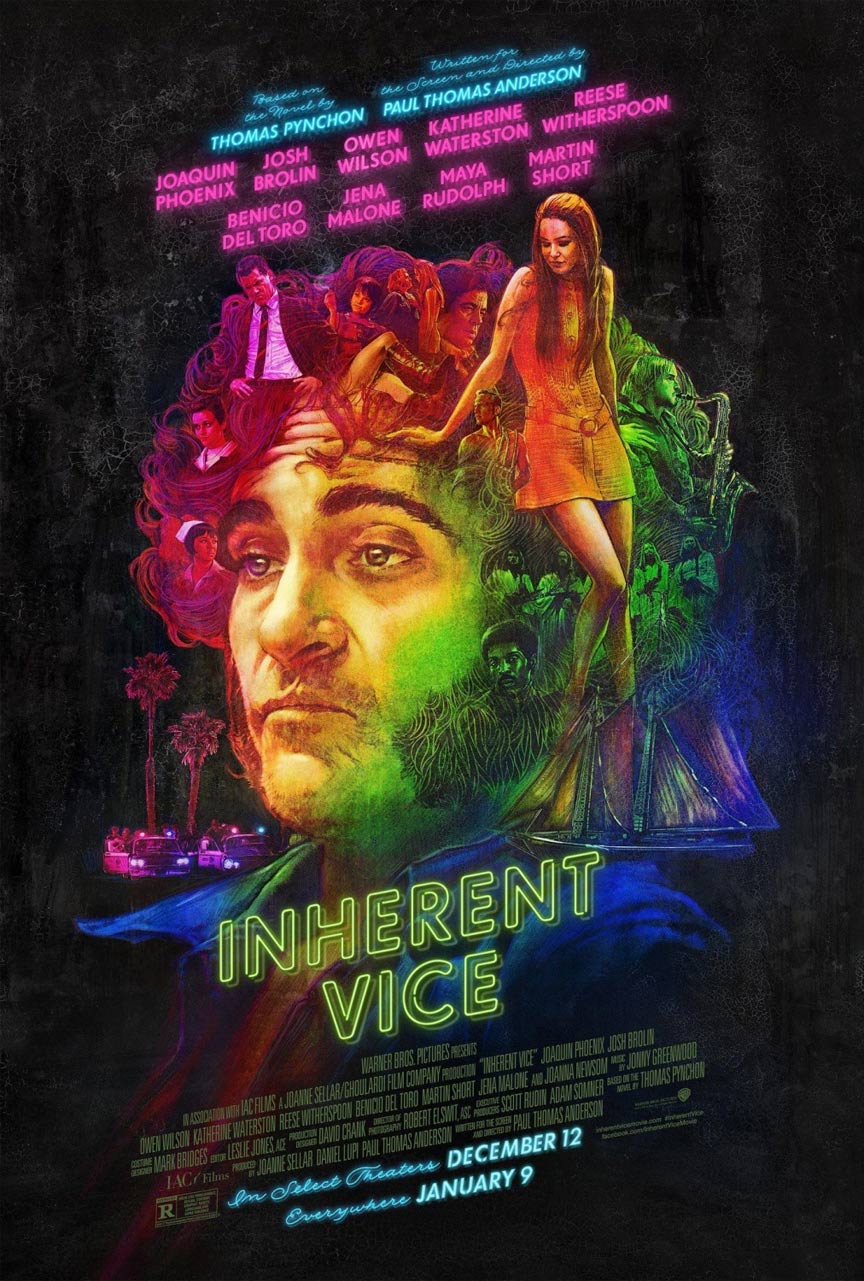
And if Twitter had been around in 1998, we might’ve been able to track mass walkouts like we did with Inherent Vice: From non-critic audiences, The Big Lebowski received what we’d consider today a pretty negative Cinemascore (B). Both were mild disappointments at the box office.
#INHERENT VICE PANCAKES MOVIE#
Both received mostly muted positives from critics, who sounded like they were being especially charitable to pedigreed filmmakers whose latest movie they didn’t love (74 percent on RottenTomatoes for Vice, 81 percent for Lebowski, the latter probably skewed somewhat by after-the-fact reviews). But if you go back to the initial reviews, the collective reaction to both films was strikingly similar.

It’s easier to remember that initial gag reflex with Inherent Vice, The Big Lebowski having mellowed over the subsequent years to become the sought-after product it is today. It’s too dense to parse, you’re looking for the wrong thing, it doesn’t come together as a whole - you’re left feeling slightly unfulfilled. It compels you to re-experience it, and your feelings keep evolving as you do, like an album where your favorite song changes with every listen.Ĭult movies tend to be more like a glass of whiskey than a cup of hot chocolate - the first sip doesn’t go down so easy. It’s not exactly pleasant at first, but something about it makes you want to rewatch - like a scab you can’t stop picking, an initially inexplicable rap verse you keep rewinding. But with a lot of them, and especially The Big Lebowski, I think it’s the capacity to become habit-forming, to inspire obsession. Plenty of people have pondered what it is about a particular film that makes it a cult classic, and there are different reasons for different movies. Their similarities run deeper than their plots, however. (Incidentally, both narrators were an attempt to riff on their literary sources - Vice a direct adaptation of Thomas Pynchon’s 2009 novel, Lebowski a loose homage to Raymond Chandler.) In Inherent Vice, it’s Sortilége, an earthy hippie chick played by Joanna Newsom who runs Doc Sportello’s local pizza joint and frequently annotates scenes via voiceover, from an astrological perspective. In Lebowski‘s case, it’s Sam Elliott’s “The Stranger,” a philosophical cowboy The Dude runs into at a bowling alley.

Both are frequently, unfairly reduced to the descriptor “quirky.” Hell, both even have a narrator speaking from a strange remove who’s almost entirely extraneous to the plot. Both movies involve a chilled out protagonist getting drawn into a hare-brained plot involving flamboyant pornographers, fascist cops, and a collection of mysterious, beautiful, and eccentric characters so obsessive they make the hero seem sane. What makes Inherent Vice Lebowski-eque, exactly? Obviously, there are the superficial similarities.
#INHERENT VICE PANCAKES FREE#
(Incidentally, it’s free on HBO Go right now) The potential to dissect, sure, but mostly just the potential to enjoy on an ongoing basis. By that I mean, the potential to rewatch, to delve, to obsess. I think Paul Thomas Anderson’s 2014 adaptation of Inherent Vice has Lebowski potential. So when someone comes along trying to compare something else to The Big Lebowski, I understand the knee-jerk urge to tell him to f*ck off.īut hear me out here.

Lebowski is my Star Trek, that one Joss Whedon thing people love, and I’m protective of it.

I’ve gone to Lebowski-themed parties, visited Lebowski-themed bars (Lebowski tourism!), and have been incorporating Lebowski-isms into my speech for so long that I barely know when I’m doing it anymore. Like a lot of people, I enjoy The Big Lebowski to an obnoxious degree.


 0 kommentar(er)
0 kommentar(er)
